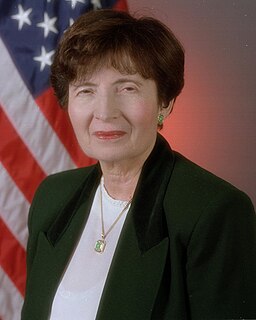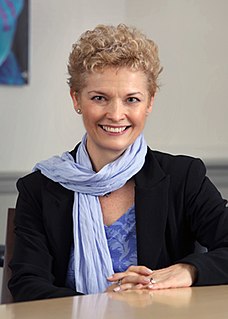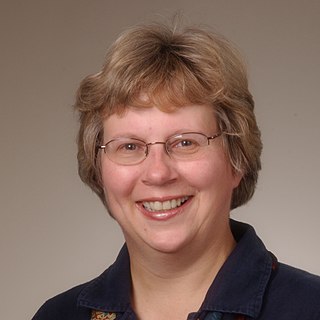
The National Institute of Neurological Disorders and Stroke (NINDS) is a part of the U.S. National Institutes of Health (NIH). It conducts and funds research on brain and nervous system disorders and has a budget of just over US$2.03 billion. The mission of NINDS is "to reduce the burden of neurological disease—a burden borne by every age group, every segment of society, and people all over the world". NINDS has established two major branches for research: an extramural branch that funds studies outside the NIH, and an intramural branch that funds research inside the NIH. Most of NINDS' budget goes to fund extramural research. NINDS' basic science research focuses on studies of the fundamental biology of the brain and nervous system, genetics, neurodegeneration, learning and memory, motor control, brain repair, and synapses. NINDS also funds clinical research related to diseases and disorders of the brain and nervous system, e.g. AIDS, Alzheimer disease, epilepsy, muscular dystrophy, multiple sclerosis, Parkinson disease, spinal cord injury, stroke, and traumatic brain injury.
The National Institute of Mental Health (NIMH) is one of 27 institutes and centers that make up the National Institutes of Health (NIH). The NIH, in turn, is an agency of the United States Department of Health and Human Services and is the primary agency of the United States government responsible for biomedical and health-related research.
The National Institute of Arthritis and Musculoskeletal and Skin Diseases (NIAMS) is one of the institutes and centers that make up the National Institutes of Health, an agency of the United States Department of Health and Human Services (HHS).

The National Institute of Nursing Research (NINR), as part of the U.S. National Institutes of Health, supports clinical and basic research to establish a scientific basis for the nursing care of individuals across the life span—from management of patients during illness and recovery, to the reduction of risks for disease and disability, and the promotion of healthy lifestyles.

Augusta University is a public university and academic medical center in Augusta, Georgia. It is a part of the University System of Georgia and has satellite medical campuses in Savannah, Albany, Rome, and Athens. It employs over 15,000 people, has more than 56,000 alumni, and is accredited by the Southern Association of Colleges and Schools.

Faye Glenn Abdellah was an American pioneer in nursing research. Abdellah was the first nurse and woman to serve as the Deputy Surgeon General of the United States. Preceding her appointment, she served in active duty during the Korean War, where she earned a distinguished ranking equivalent to a Navy Rear Admiral, making her the highest ranked woman and nurse in the Federal Nursing Services at the time. In addition to these achievements, Abdellah led the formation of the National Institute of Nursing Research at the NIH, and was the founder and first dean of the Graduate School of Nursing at the Uniformed Services University of the Health Sciences (USUHS). A few of Abdellah's more passionate interests in public health included the importance of long-term care planning for elderly patients; the need to strengthen nursing school infrastructure; and the necessity of patient-centered approaches in nursing. In 2000 Abdellah was inducted into the National Women's Hall of Fame. During her acceptance speech, Abdellah made the following quote: "We cannot wait for the world to change. .. Those of us with intelligence, purpose, and vision must take the lead and change the world. .. I promise never to rest until my work has been completed!”

The National Institute of Biomedical Imaging and Bioengineering (NIBIB), founded at the National Institutes of Health (NIH) in 2000, is located in Bethesda, Maryland. It is one of 27 institutes and centers that are part of NIH, an agency of the U.S. Department of Health and Human Services (HHS).

The NIH Intramural Research Program (IRP) is the internal research program of the National Institutes of Health (NIH), known for its synergistic approach to biomedical science. With 1,200 Principal Investigators and over 4,000 Postdoctoral Fellows conducting basic, translational, and clinical research, the NIH Intramural Research Program is the largest biomedical research institution on earth. The unique funding environment of the IRP facilitates opportunities to conduct both long-term and high-impact science that would otherwise be difficult to undertake. With rigorous external reviews ensuring that only the most outstanding research secures funding, the IRP is responsible for many scientific accomplishments, including the discovery of fluoride to prevent tooth decay, the use of lithium to manage bipolar disorder, and the creation of vaccines against hepatitis, Hemophilus influenzae (HIB), and human papillomavirus (HPV). In addition, the IRP has also produced or trained 21 Nobel Prize-winning scientists.
The National Institutes of Health Common Fund is an initiative of the National Institutes of Health (NIH) aimed at supporting research collaboration between two or more NIH institutes and centers (ICs). The fund offers flexible support for cutting edge, multidisciplinary, multi-investigator and higher risk research. It is intended to streamline US biomedical research and make it more flexible in response to society's health needs. The high-impact programs it supports are known collectively as the "NIH Roadmap for Medical Research". It is coordinated by the Office of Strategic Coordination, one of the six offices of the Division of Program Coordination, Planning, and Strategic Initiatives (DPCPSI) within the Office of the Director.

Sarah (Sally) Jean Rockey is the inaugural Executive Director of the Foundation for Food and Agriculture Research, where she funds innovative agricultural research efforts through private/public partnerships. Prior to this position, Rockey was Deputy Director for Extramural Research at the United States National Institutes of Health (NIH), overseeing research administration for the largest research program in the world.

Patricia A. Grady is an American neuroscientist internationally recognized for her research on stroke, which specializes in cerebral blood flow, metabolism, and function. She is director of the National Institute of Nursing Research (NINR), part of the National Institutes of Health (NIH) in Bethesda, Maryland. Grady was elected to the Institute of Medicine in 1999 and is a member of several scientific organizations, including the Society for Neuroscience and the American Academy of Nursing. She is a fellow of the American Stroke Association and the American Neurological Association.

Judith L. Vaitukaitis was a reproductive neuroendocrinologist and clinical researcher who played a key role in developing a biochemical assay in the early 1970s that ultimately led to the creation of the home pregnancy test. She served for 12 years as director of the US National Center for Research Resources (NCRR) at the US National Institutes of Health (NIH).

Yvonne T. Maddox is an American academic who currently works as vice president for research at the Uniformed Services University. She was previously the acting director of the National Institute on Minority Health and Health Disparities. Her career at the National Institutes of Health also includes previous leadership roles as acting deputy director of the National Institutes of Health and deputy director of the Eunice Kennedy Shriver National Institute of Child Health and Human Development.

Stephanie L. Constant is an American immunologist and science administrator. She was an associate professor at George Washington University and a scientific review officer at National Heart, Lung, and Blood Institute before becoming chief of the National Institute of General Medical Sciences Office of Scientific Review in 2017.

Jodi Beth Black is an American microbiologist and research administrator serving as deputy director of the Office of Extramural Research at the National Institutes of Health. She was previously the director and vice president of research administration at the Translational Genomics Research Institute and the acting director of the division of extramural activities at the National Heart, Lung, and Blood Institute.

Della Marie Hann is an American psychologist and research administrator serving as the associate director for extramural research at the Eunice Kennedy Shriver National Institute of Child Health and Human Development.

Ann Marie Hardy is an American epidemiologist and microbiologist who served as the human research protections officer at the National Institutes of Health Office of Extramural Programs.

Marie Ussing Nylen is a Danish-American biologist, dentist, microscopist, and badminton player known for her research on the morphology of tooth enamel and her contributions to refining the electron microscope as an aide in dental research at the National Institute of Dental and Craniofacial Research (NIDR). She was the first woman director of the NIDR's Intramural Research Program. Nylen became director of the NIDR extramural research program in 1984. In 1947 and 1953, she won the women's world singles event at the All England Open Badminton Championship.

Emmeline Edwards is a Haitian-American neurochemist serving as director of the division of extramural research at the National Center for Complementary and Integrative Health. She previously researched the neural mechanisms of complex behaviors and characterization of a genetic model of affective disorders at the University of Maryland, College Park. Edwards was deputy director of the extramural program at the National Institute of Neurological Disorders and Stroke.

Diane Louise Damiano is an American biomedical scientist and physical therapist specializing in physical medicine and rehabilitation approaches in children with cerebral palsy. She is chief of the functional and applied biomechanics section at the National Institutes of Health Clinical Center. Damiano has served as president of the Clinical Gait and Movement Analysis Society and the American Academy for Cerebral Palsy and Developmental Medicine.

















